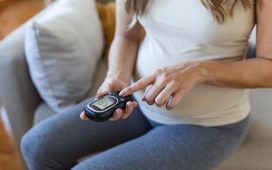Average stress and changes in subjective energy levels on previous day linked to incident headache, with different valence for timing of headache
By Elana Gotkine HealthDay Reporter
WEDNESDAY, Jan. 24, 2024 (HealthDay News) — Sleep quality and energy are precursors of incident headache, with different patterns for predictors of morning and later-day incident headache, according to a study published online Jan. 24 in Neurology.
Tarannum M. Lateef, M.D., M.P.H., from George Washington University in Washington, D.C., and colleagues conducted an observational study to examine the diurnal links between average and changes in average levels of prospectively rated mood, sleep, energy, and stress as predictors of incident headache. Structured clinical diagnostic assessment of both headache syndromes and mental disorders and electronic diaries that were administered four times per day for two weeks, yielding a total of 4,974 assessments, were included in the analyses. Incident morning and later-day headaches were the main outcomes.
Data were included for 477 participants, aged 7 through 84 years. The researchers found that incident morning headache was associated with lower average and a decrease in average sleep quality on the previous day, after adjustment for demographics and clinical covariates and emotional states (β = −0.206 and −0.172, respectively). There was an association seen for average stress and changes in subjective energy levels on the previous day with incident headaches, with different valence for morning and later-day headaches (decrease and increase, respectively [β = −0.145 and 0.157, respectively]). After controlling for a history of migraine diagnosis, mood and anxiety disorders were not significantly associated with incident headache.
“These intriguing findings suggest that both the longer-term and short-term evaluation of the dynamic inter-relationships between the rhythms of energy, sleep, and headaches should be a priority for future research,” the authors write.
Copyright © 2024 HealthDay. All rights reserved.








